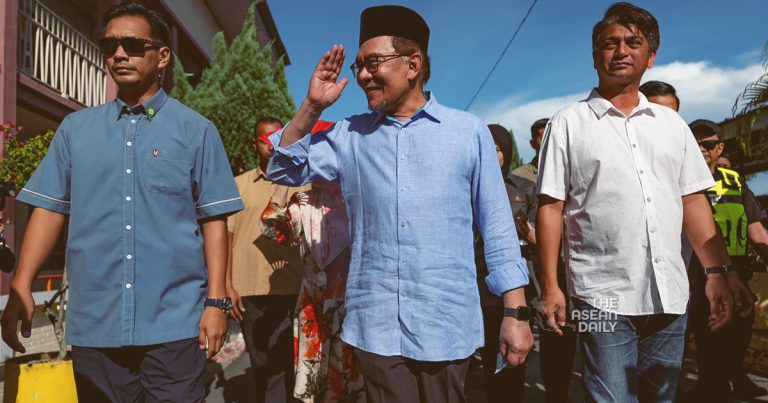13-8-2023 (KUALA LUMPUR) The political landscape in Malaysia experienced a significant development as Prime Minister Anwar Ibrahim’s ruling coalition successfully thwarted a robust challenge posed by an opposition alliance in state elections, official results revealed on Sunday. Analysts assert that this victory grants Anwar a window of opportunity to consolidate his authority within the predominantly Islamic Southeast Asian nation.
The polling conducted on Saturday across six states marked one of the most formidable trials yet for Anwar, who ascended to the role of prime minister in November of the preceding year, tasked with leading a unity government following an inconclusive general election.
Notably, the outcome of the state assembly elections holds no bearing on Anwar’s prevailing two-thirds majority in the parliament. Nonetheless, it carries significant weight as an indicator of support for Anwar’s agenda, which encompasses the drive for a more inclusive society allowing minority ethnic groups a greater role in a nation predominantly composed of Malay Muslims, alongside sizable Chinese and Indian communities.
The Election Commission’s released results indicated that Anwar’s Pakatan Harapan coalition managed to retain control over three states: Selangor, Penang, and Negeri Sembilan.
In contrast, the opposition alliance Perikatan Nasional, spearheaded by the PAS party that aims to establish a theocratic state in Malaysia, continued its stronghold over Kedah, Terengganu, and Kelantan.
Of particular significance, Anwar’s retention of Selangor – home to the nation’s largest port – and Penang, a hub of Malaysia’s flourishing semiconductor industry, are deemed triumphs by analysts.
Nonetheless, the ruling coalition conceded its two-thirds majority in Selangor due to the opposition’s substantial inroads.
The Perikatan alliance is fortified by the support of the Malaysian Islamic Party, or PAS, which demonstrated considerable strength in the previous year’s general elections, stoking concerns within the ruling party of a potential upset leading to a shift in power dynamics.
In response to the results, Anwar, speaking at a late-night press conference, asserted, “This is a decision of the people. We have to respect this decision,” while simultaneously appealing for unity after a divisive campaign. He further emphasised that “the federal government remains strong after this poll and we will continue to promote a prosperous Malaysia.”
Oh Ei Sun, associated with the Pacific Research Center of Malaysia think tank, described the outcome as a “nail-biting win for Anwar after he thwarted the challenge from the powerful Islamic party PAS.”
Bridget Welsh, a Malaysia expert affiliated with the University of Nottingham, interpreted the retention of the three states as a “victory for Anwar”, noting that he entered the campaign in a defensive stance.
Reflecting on the results, Mustafa Izzuddin, a political analyst with Solaris Strategies Singapore, acknowledged that while the elections served as a stress-relief for Anwar by avoiding substantial political upheaval, they also marked a setback as his coalition failed to make significant headway at the polls.
With the next general elections not scheduled until 2027, Mustafa underlined Anwar’s ample time to garner support and navigate complex political negotiations within the coalition.
James Chin, a Malaysia expert based at the University of Tasmania in Australia, had cautioned prior to the elections that even a single state loss could yield “dire” consequences, including shifts in allegiances that might jeopardize Anwar’s future as prime minister.
Having emerged as prime minister last November following an extended journey as an opposition leader, Anwar’s party secured the most parliamentary seats in the general election. However, falling short of an outright majority prompted an alliance with erstwhile adversaries, particularly the United Malays National Organisation, to secure the requisite two-thirds parliamentary majority and the approval of Malaysia’s monarch to establish a “unity government”.
Despite the coalition’s endurance thus far, highlighted by the country’s stability in the wake of the scandal-tainted Najib Razak’s departure as prime minister in 2018 due to extensive corruption tied to state fund 1MDB, Oh urged Anwar to remain watchful as he pursues reforms.
Given the volatile nature of political landscapes, Oh stressed, “There is no guarantee that his government will stay until the next general elections.”




